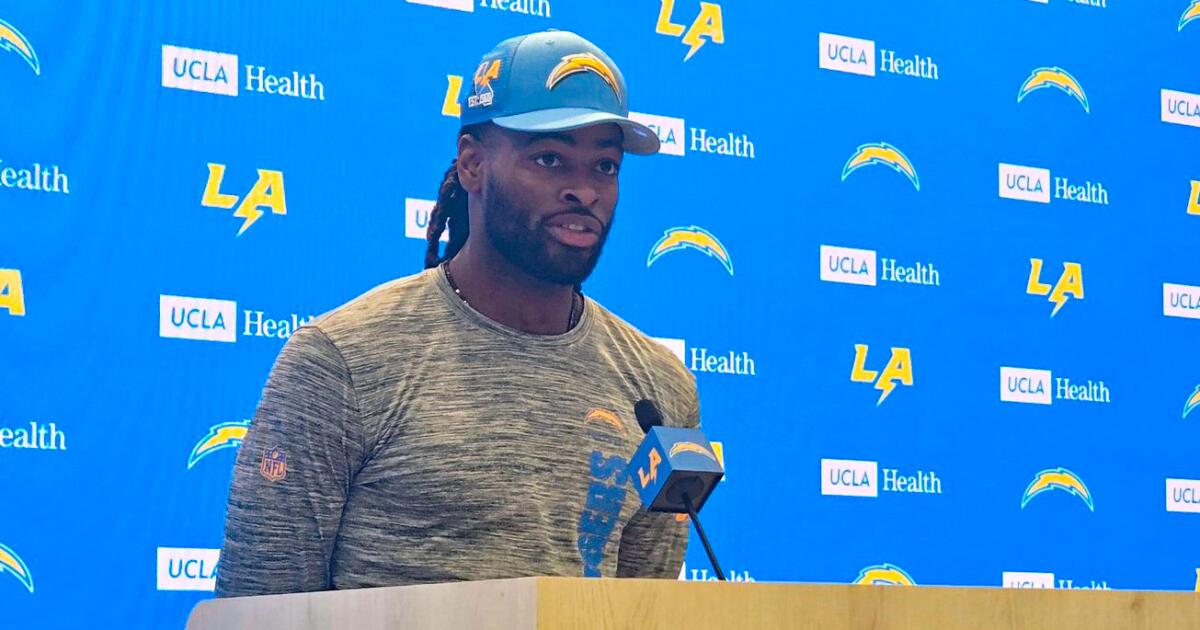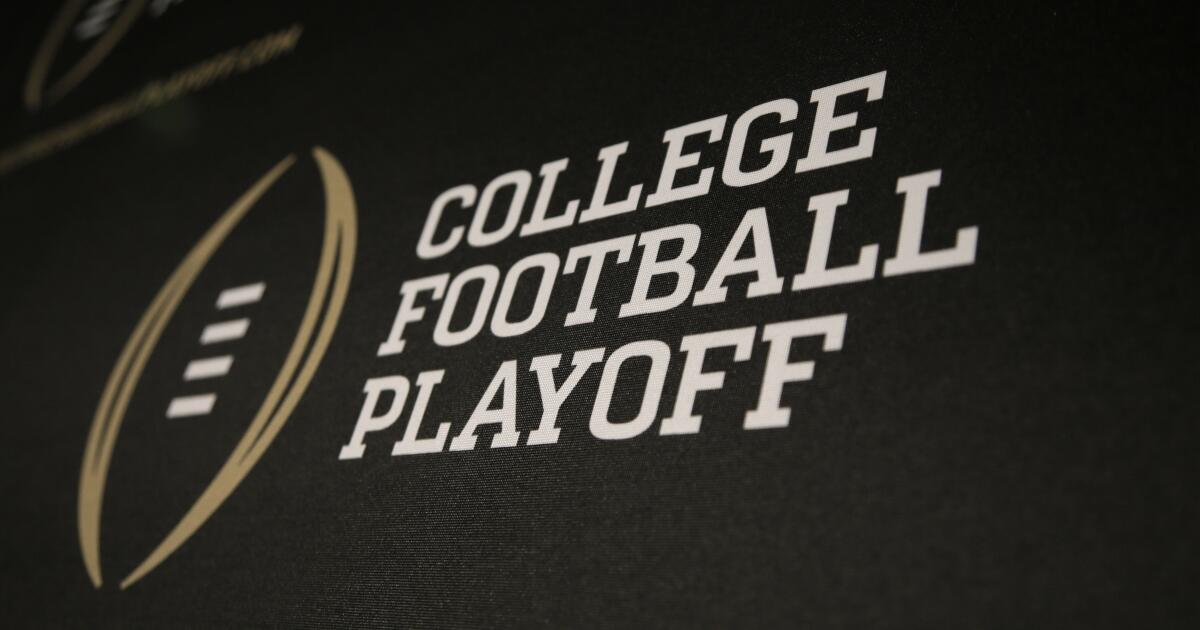Chargers’ Najee Harris sustains eye injury in fireworks incident
Chargers running back Najee Harris sustained a minor eye injury during a holiday weekend fireworks accident, but the prized free-agent signing will be ready for the upcoming season, his agent confirmed to The Times on Thursday after reports and online rumors prompted speculation of a more severe injury.
“Najee Harris was present at a 4th of July event where a fireworks mishap resulted in injuries to several attendees,” Harris’ agent Doug Hendrickson said in a statement. “Najee sustained a superficial eye injury during the incident, but is fully expected to be ready for the upcoming NFL season.”
With four 1,000-yard rushing seasons in Pittsburgh, Harris is expected to bring an immediate boost to a Chargers running game that sputtered last season in offensive coordinator Greg Roman’s first year. Harris, who signed a one-year deal worth up to $9.25 million, will pair with first-round pick Omarion Hampton in the backfield as the Chargers hope to make back-to-back playoff appearances for the first time since 2008 and 2009.
The Chargers begin training camp on July 17 as one of the first teams to begin preparations for the upcoming season. The Chargers will play the Detroit Lions in the Hall of Fame Game on July 31 and open the regular season in Brazil on Sept. 5 against the Kansas City Chiefs.

